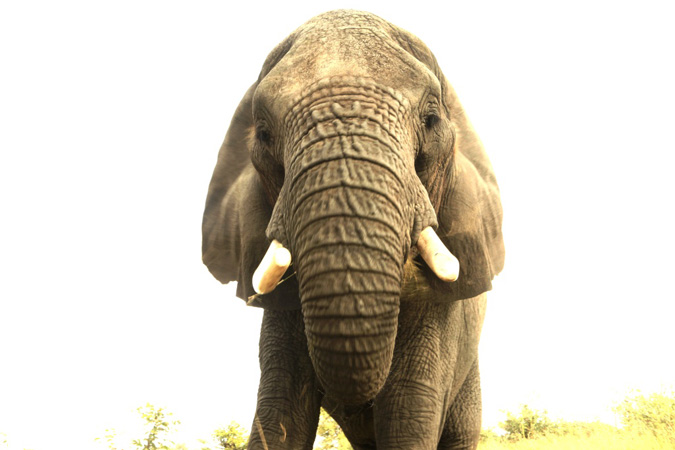Hunters who engage in unethical and illegal practices are largely to blame for the decline in the “overall acceptance” of trophy hunting by the general public and influential institutions across the globe says Namibian Professional Hunting Association (NAPHA) immediate-past president Kai-Uwe Denker. Written by Oscar Nkala

Addressing delegates at the association Annual General Meeting (AGM) in Windhoek in early December, Denker said the global hunting industry has been under siege from a coordinated, international anti-hunting movement since the 1970s.
He said of late, the image of the industry business had been battered by numerous revelations of unethical conduct by some hunters who are motivated by greed.
“Typical of human nature and for many reasons including greed, many hunting operators have thrown into the wind, not only the generally accepted standards of ethical hunting but also the very important ecological and nature conservation linkage it has to the principle of sustainable use (of wildlife resources),” Denker said.
Further, he said because financial motives tended to over-ride any moral considerations within the hunting industry, the little public support for trophy hunting had been lost to mounting reports of illegal and unethical hunting.
Such reports exposed the “well-founded and well-meant” principle of sustainable use of natural resources to rhetorical questions such as whether it was now about the abuse of natural resources.
Denker said the Namibian trophy hunting industry could survive, but only if its members restored the conduct of ethical and morally acceptable hunting. Such conduct would include the wider observation and adherence to a strict animal welfare code in order to convince the sceptical public that the only acceptable justification for trophy hunting is that it is an “indispensable” tool for practical nature conservation.

“It is no longer acceptable to try and justify unacceptable hunting practices by claiming that ethics and morals are matters of personal opinion. The worldwide community has clearly told us that with this, you have crossed the line. It is no longer good enough for a professional hunter to just drive a Landcruiser off the road and shoot a big boar with a rifle,” Denker said.
The strategy to win back public support for trophy hunting would also involve education and awareness campaigns to teach the hunters about the basics of conservation and sustainable use of wildlife resources.
The outgoing association president called for the introduction of a new professional hunter training curriculum that would prioritise conservation, with emphasis on aspects like functioning ecosystems, habitat aspects and population dynamics.
The current Namibian professional hunter training curriculum is an oral and practical course that was tailored-made to suit candidates who cannot read or write.
Denker said the reputation of the hunting industry would remain on “accelerated decline” as long as sectoral audits continued to reveal evidence of its manipulation of rules to facilitate the illegal exploitation of wildlife resources.
Should the sector fail to restore mechanisms to monitor adherence to hunting rules and moral ethics, professional hunters might as well abandon the business and hang up their rifles, Denker warned.
Addressing the same meeting, Deputy Minister of Environment and Tourism Tommy Nambahu said throughout 2016, the Namibian hunting industry struggled against severe challenges which threatened it’s sustainability as a lead contributor to wildlife and nature conservation.
These included the four-year-old regional drought that has dried up water resources, killing thousands of wild animals and livestock across the semi-desert country.
The ripple effects of global events such as the attack on, and advocacy against all forms of trophy hunting following the shooting of Cecil the Lion in Zimbabwe in mid-2015, have negatively affected the Namibian trophy hunting industry.
The iconic Zimbabwean male lion, which was a collared subject of a continuing lion research project run by Oxford University, was lured out of Hwange in July 2015 and killed by US doctor Walter Palmer with the help of professional hunter Theo Bronkhorst.
The US doctor initially shot and badly injured the lion with a bow and arrow. However, the bow-hunt, which is illegal in Zimbabwe, did not kill the lion and he had to finish it of with a rifle, hours after the first attack.
The public outcry generated by the criminal and unethical nature of the hunt galvanised the global anti-hunting lobby with some conservationists calling for a total ban of trophy hunting of lions and other endangered wildlife species.
Nambahu said trophy hunting in Namibia had declined in the aftermath of the illegal and unethical Cecil hunt because it generated global calls for a ban on trophy hunting and forced several airlines to boycott the transportation of trophies hunted in Africa.
“It is important for us as regulators, hunters, hunting outfitters and stakeholder communities to remain ethical in our dealings to avoid some of the unbecoming criticisms that may tarnish and further diminish our reputation,” the deputy minister said.
Internally, NAPHA is struggling to get rid of the perception that it is a white-dominated industry amid reports that the country has managed to train only 350 black professional hunters since the government drive for racial inclusion in the industry began in 2001.

Denker said in the past 20 years when efforts to promote inclusion largely failed, white members of the hunters association occasionally felt unwelcome although they were citizens who loved the country like any other.
Apart from the black professional hunter training project, another initiative that sought to promote black participation in the hunting business was the provision, in 2013, of courses to help communal conservancy operators become independent hunting operators.
Read about the link between hunting and tourism in Namibia
To comment on this story: Login (or sign up) to our app here - it's a troll-free safe place 🙂.![]()








